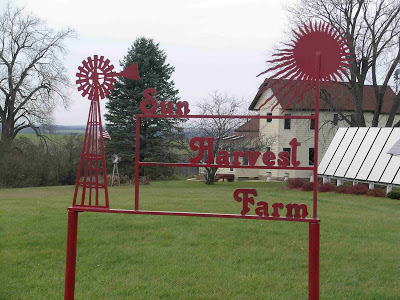by jboullion | Dec 31, 2009 | Uncategorized
From an article in the Stevens Point Journal:
WISCONSIN RAPIDS — Papermaker NewPage continues to study the feasibility of building a small-scale biorefinery in Wisconsin Rapids.
Despite previous projections they would finish the study by the end of 2009, NewPage Corp. still is examining whether the project should move forward, spokeswoman Shannon Semmerling said.
“Feasibility studies take time to conduct,” she said. Semmerling did not comment further on the project, saying there was no new information to share.
In January 2008, the Miamisburg, Ohio-based company garnered a $30 million grant from the U.S. Department of Energy to build a small-scale biorefinery in Wisconsin Rapids. Stora Enso North America originally submitted the request for federal money, which NewPage inherited when it bought the former Wisconsin Rapids-based company in December 2007 for $2.6 billion.
Since then, company leaders have been studying the project’s feasibility; once that is complete, the company has said it will work with the Energy Department to determine how to proceed.
The proposed refinery would produce 370 barrels of renewable diesel fuel a day — about 5.5 million gallons a year — from mill residue and wood chips. To get the grant, the project must be completed by 2012, according to the Energy Department.
by jboullion | Dec 22, 2009 | Uncategorized
An article by Diane Greer in BioCycle gives a detailed description of the biodigester at Gunderson Lutheran:
Gundersen Lutheran Health Systems and City Brewing Company, both based in La Crosse, Wisconsin, are partnering on an innovative cogeneration project fueled by biogas from the brewery’s waste treatment process. The system, which started operating in October, is expected to generate 3 million kilowatt hours (kWh) per year of electricity, equivalent to 8 to 10 percent of the power used on Gundersen Lutheran’s La Crosse and Onlaska campuses. City Brewing will employ waste heat from the system, estimated at 17,000 mmBtus/year, to warm its anaerobic digesters producing the biogas. . . .

by jboullion | Dec 7, 2009 | Uncategorized
 The Koerner’s installed the domestic hot water system (right)in March 2006. It also provides a portion of the heat for the house.
The Koerner’s installed the domestic hot water system (right)in March 2006. It also provides a portion of the heat for the house.
Sun Harvest Farm, owned by Jerry and Penny Kroener, Ridgeway, WI
Renewable Energy Projects
September 2009 Update
General:
In 2005 we embarked on major renovations and additions to our old farmhouse. This included working with Focus on Energy to have site assessments performed for Solar Photovoltaic, Solar Thermal and Wind Turbine Systems. We also investigated wood burning systems because we have substantial quantities of firewood on our property. Our decisions included the following:
1. Add additional insulation, all new windows and new doors.
2. Replace our old oil burning furnace with a high efficiency propane boiler (our little Munchkin).
3. Install a Solar Photovoltaic grid-connected system to produce electricity.
4. Install a Solar Thermal (hot water) system to preheat domestic hot water and provide some house heat.
5. Install a counter-flow masonry heater fireplace using our own limestone for the masonry cladding.
6. In 2008 we built and installed a hot air collector to provide some heat in our barn workshop.
7. In 2009 we installed our 2nd Photovoltaic grid-connected system.
8. In 2009 we also upgraded our solar hot water storage tank.
Continued
by jboullion | Dec 3, 2009 | Uncategorized
From an article by Raghav Mehta on The Minnesota Daily:
As policymakers and environmentalists search for new sources of renewable energy, researchers at the University of Minnesota are working on turning leaves and branches into energy.
University researchers are currently exploring the viability of using forest-based biomass as an alternative energy source. Last month they received a $2.7 million federal grant to expand the footprint of their research to cover 50 million acres of forestland in Minnesota, Wisconsin and Michigan.
Forest resources professor Anthony D’Amato will lead the study in collaboration with scientists and researchers from the U.S. Forest Service and the University of Wisconsin.
Researchers will gather branches, leaves and shrubs to analyze the economic and ecological costs and benefits of harvesting the woody biomass over the next four years.
D’Amato said forest-based biomass gives another option in the search for a more environmentally friendly source of energy.
by jboullion | Dec 1, 2009 | Uncategorized
From an article by Heidi Clausen in The County Today:
TURTLE LAKE – An anaerobic cogeneration facility being proposed in Turtle Lake could help solve a growing problem for area dairy processing plants.
GreenWhey Energy, a privately held company spearheaded by Lake Country Dairy founder and project manager Tom Ludy, would recycle about 330,000 gallons of high-strength wastewater daily.
Initially, the waste would come from at least five northwestern Wisconsin processing plants within about 60 miles of Turtle Lake.
Eventually, it could be feasible to expand the facility so it could take in wastewater from as many as 11 regional plants, Ludy said.
The project would generate enough electricity to power about 1,500 homes along the Xcel Energy grid and create 242 million BTUs of heat a day. Underground pipes would transfer the heat to businesses and other buildings throughout the village.
GreenWhey plans to donate a free heat supply to the Turtle Lake School District and provide nutrient-rich solids that could be sold as fertilizer to farmers.
After the digestion process, an aerobic digestion system would clean the water so it could be discharged above ground.
Plans are to have the digester project up and running by next November on property near Lake Country Dairy in Turtle Lake, Ludy said .

